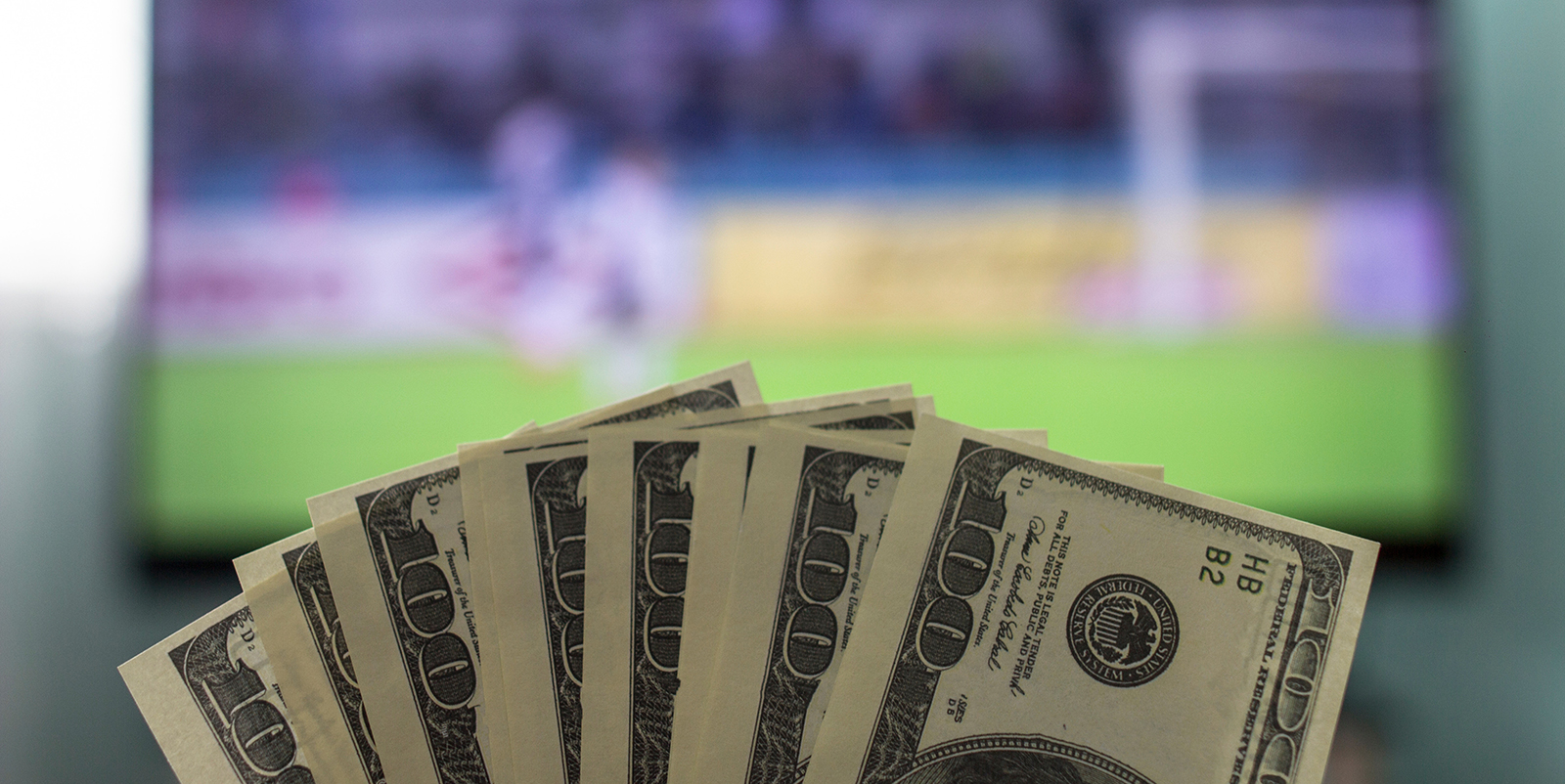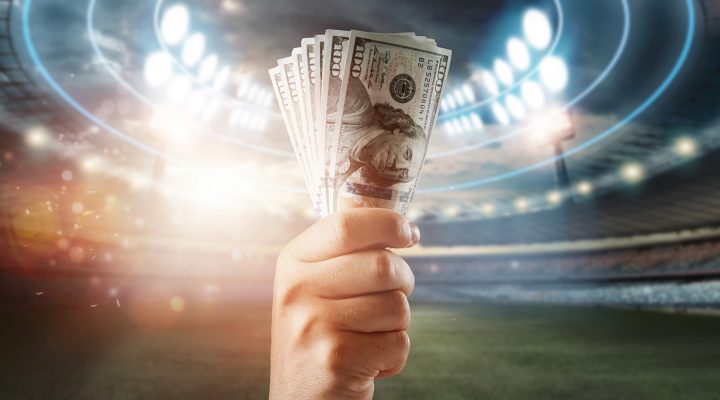A vice is a vice until it’s not.
How did gambling, once called by Walter Rauschenbusch “the vice of the savage,” become a glittering virtue of the American dream?
Gambling, particularly for Baptists, has long been condemned. From Billy Sunday to Billy Graham, sermons against gambling poured from pulpits, especially in the South from Southern Baptists. There is no easy answer to how the South moved from the Bible Belt to the Gambling Belt.
Riverboat casinos are now ubiquitous on the Mississippi and Red Rivers. The heart of the Bible Belt, Shreveport/Bossier City, welcomed at least four riverboats with open arms. There are 28 casinos in Louisiana, 29 in Mississippi and four in Alabama. Gambling opportunities have spread like kudzu along I-10 in Mississippi.

Treasure Chest Casino, Kenner, La. (Photo: Trip Advisor)
Now, the open door that makes every living room a potential casino is sports betting apps: BetMGM, DraftKings, FanDuel, PointsBet, Caesars, and FOXBet are among the leaders. Sports betting apps offer massive signing bonuses as if each potential gambler is a 5-star recruit. The enticement offers greater appeal than the talking serpent offering the forbidden fruit to Eve.
The conversion of vice into virtue means a kind of born-again experience becomes necessary. Gambling’s dramatic conversion involved at least four moves.
First, gambling marketed itself as “good business.” That’s halfway to redemption in America’s allegiance to the Market God of excess capitalism. To move from Las Vegas to Wall Street is more than window dressing.
Gambling interests always have had good political instincts. The road from only one state having legalized sports betting — Nevada — to 30 states started with the introduction of the lottery. The lottery started the ball rolling, and gambling now has wormed its way into every American home and cellphone.
Second, gambling benefited from a sea change in the moral climate of the United States. The nation became, in the words of philosopher Charles Taylor, “secular.”
A secular world offered gambling a wide-open entrance into the living rooms of America. A business once thought shady and illegal, operated by mobsters, loan sharks and bookmakers, now came dressed in a suit and tie, with offices on Main Street and endorsed by Corporate USA.
In an age where truth and morality became even more contestable values, gambling found an opening to transform from vice to virtue.
Third, gambling received legal sanction. In 2018, the U.S. Supreme Court ruled by a 7–2 margin in Murphy v. National Collegiate Athletic Association that sports betting should be legal. This became a matter of states’ rights.
In a short five years, the proliferation of gambling is beyond stunning. It’s everywhere.

(123rf.com)
Fourth, gambling allied itself with major sports and became a “sport” instead of an illegal activity. Gambling, in its new garb and shiny new reputation, became an evangelist and converted America’s major sports leagues to a full-orbed embrace of sports betting.
The conversion of gambling into a reputable business also entailed a baptism. Gambling went under the water and died to its old sinful ways and then emerged as a good, clean sport. Dressed in the robes of royalty, gambling took its place as a sport with football, baseball and basketball.
The haunting words of The Godfather are echoed by today’s gambling executives: “Make them an offer they cannot refuse.” The gambling world and major sports have gone to the chapel and married.
Money, big money — the accelerant in every transition from vice to virtue — sealed the covenant, and the Market God officiated at the ceremony where gambling became the husband of a new wife: professional sports.This was an arranged marriage for the mutual financial profits of all parties.
Professional sports and gambling are now a menage trois of excitement, thrills, adventure and chance. A royal family of the NFL, the Mannings, are hucksters for gambling. ESPN provides more information than backlot bookies to encourage placing bets on every possible outcome during the game from opening kickoff to final gun. Interactive digital television enhances the gambling experience. “A man’s home is his castle” has been replaced with “A man’s home is his casino.” And the drinks are free. Have Casamigos on the house.
Yet the gambling world, in whatever guise, is a dangerous and unmanageable institution, presenting itself on the one hand as the provider of fun, entertainment, value and money, and on the other hand as a repository of the sacred values of the new secular religion, which from time to time will send you home having lost every dollar in your account.
In an era of runaway political populism, gambling has produced a copycat economic populism. One of America’s great populists, Huey Long, said, “‘Every man a king’ — that’s my slogan.”

(123rf.com)
Caesar’s Sportsbook app began its national campaign with actor J.B. Smoove as Caesar, chanting an echoing “You are, I am, we are” as he moves through scenes from ancient Rome, finally declaring “We are all Caesars!” to a cheering crowd before a quick cut to the call to action: “Caesars Sportsbook. Download it.”
Gambling turns the American dream into a construct of getting lucky. The advertising of the Bally Sports casino in Dayton, Ohio: “I always get lucky with my lucky Buckeye.”
John Brueggeman, in Rich, Free and Miserable, says: “The alluring quick fix of materialism has also contributed to increased rates of gambling, which has been facilitated through the total access of the Internet. If super–role models, like Michael Jordan, or education officials, like William Bennett, can reveal their extensive gambling habits, without these roles being noticeably altered, gaming must be OK.”
The dark side of gambling is the cancer of debt. This is, in fact, a disease. In the United States, personal debt has reached alarming levels and the nation is still attempting to recover from the Great Recession of 2008 and the COVID pandemic. American credit card debt in 2022 reached a cumulative $930.6 billion.
“The banks provide credit cards that service the gambling debts at interest rates from 19% to 35%.”
The sports betting apps and the big banks are preying on the American public. Instead of paying a mob boss or a loan shark, Americans now pay JP Morgan Chase, Bank of America, Capitol One, Citigroup and Wells Fargo. The banks provide credit cards that service the gambling debts at interest rates from 19% to 35%. The sports betting corporations provide the incentive to increase the credit card debt.
I will not bet on many pastors joining to mount a protest from the pulpits today. There will be more Southern Baptist deacons waging bets on LSU or Alabama football than Southern Baptists condemning women in the pulpit. Preachers will bash gays before condemning gambling.
A study from Nashville-based Lifeway Research found most pastors believe it is morally wrong to bet on sports. The survey masks the reality that sermons against gambling rarely show up in our churches.
Surfing the web, I found opposition to gambling from Focus on the Family and from John MacArthur. The sermons of the 100 largest congregations in the nation don’t reveal gambling as a topic of concern. A preacher might even suggest, “Jesus never mentions gambling; neither will I.”
Yet we know money moves mountains. Money changes minds and votes. Paul had it right: “The love of money is the root of all evil.” No wonder many Americans swear: “He who has the gold makes the rules.”
Just as we are finally coming to grips with sports becoming America’s religion, we are faced with sports betting overwhelming the actual sports.
“Sport has really eclipsed religion as the national pastime.”
“Sport has really eclipsed religion as the national pastime,” Randall Balmer says. “People are much more fanatical about sport than religion these days.” The next stage suggests that people will be more fanatical about sports betting than about their favorite team.
Casino ads can be spotted in all corners of the biggest stadiums. Football stadiums are named for gambling corporations. The official name of the Superbowl, home of the New Orleans Saints, is Caesar’s Superdome. Caesar’s paid $138 million for the naming rights. Now, we have Caesar’s Superdome and Caesars Palace. It’s just business, right?
This was the start of a movement that would make illegal bookmakers disappear faster than Blockbuster managers.
What impact will long-term sports betting have on our mental health, our public health, our spiritual health? While I do not envision Texas Southern Baptist megachurches loading buses of congregants for a daytrip from Dallas to Bossier City for a day of good, clean fellowship, food and gambling, I am not convinced Christians are seriously considering the impact this is going to have on our nation’s mental, public and spiritual health.
Gambling, like smoking, eating too much salt, sugar, bread and a host of other bad eating habits, is detrimental to our nation’s health. Legal sports betting — at times with money borrowed via credit cards — exudes what historian David Courtwright calls “limbic capitalism.”
The term describes “a technologically advanced but socially regressive business system in which global industries, often with the help of complicit governments and criminal organizations, encourage excessive consumption and addiction. The phrase suggests the way contemporary business profits from selling substances (sugary food) and experiences (sports betting) that flood it with pleasure-causing hormones.”
What’s a pastor to say?
If we attempt to peel back the layers of the promised “forbidden fruit” that will make us wealthy, what will we find? That we have been deceived again?
“There remains for the pastor the faithful preaching of Scripture.”
There remains for the pastor the faithful preaching of Scripture. For example, Luke 16:19–31 tells the story of Lazarus and the rich man. Any preacher worth his NRSV can make application to our current devotion to money to enable a congregation to think seriously about the downsides of greed, gambling, debt and depending on luck.
Jesus says it is impossible to serve God and mammon (Matthew 6:24). Church members at the casino on Saturday night and in church on Sunday morning will need to struggle with the implications of this text.
In Jesus’ story of the rich farmer desiring to build bigger barns, the preacher may bring a laser focus to the spread of gambling in our nation. Jesus speaks to the American dream. “I will do this: I will pull down my barns and build larger ones, and there I will store all my grain and my goods. And I will say to my soul, ‘Soul, you have ample goods laid up for many years; relax, eat, drink, be merry.’”
This is the American dream — the desire for more. This is our story; this is our song. Gambling has been building more “barns” across America.
A preacher may cautiously proceed along the lines of pulling back the glitter of gambling and exposing that it is not a virtue. The definition of “virtue” employed here is that it is a good or useful quality of a thing. Gambling doesn’t nourish the American spirit. Nor does it strengthen the American character. The work ethic is diminished in a gambling ethic promising “something for nothing” and “get-rich-quick schemes.”
And the prophetic option always is open for the risk-taking preacher. With the audacity of an Amos, the preacher may insist the welcoming door into the kingdom of wealth proffered by gambling may become a prison of loss, addiction and trauma.
Making gambling look like a virtue is like putting a gold ring in a pig’s snout. If all a person sees is the gold ring, he never notices he competes with giant hogs who will eat him alive.

Rodney Kennedy
Rodney W. Kennedy is a pastor and writer in New York state. He is the author of 10 books, including his latest, Good and Evil in the Garden of Democracy.
Related article:
Is sports gambling any more immoral or risky than the stock market? | Analysis by Andy Brookshire


